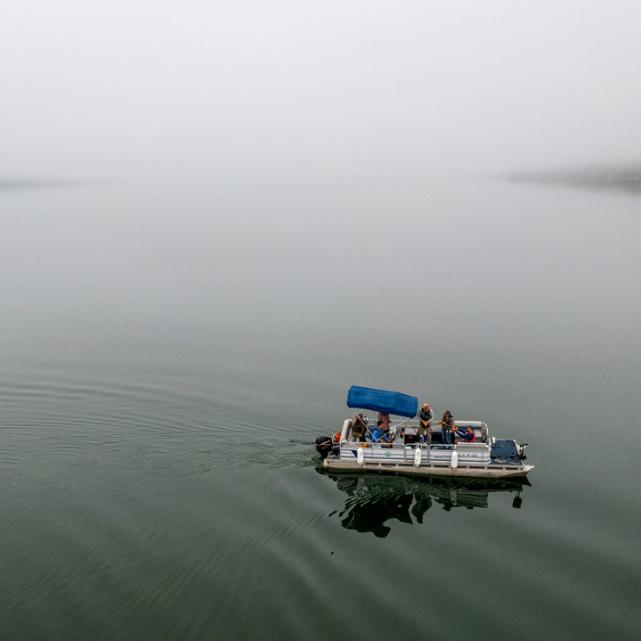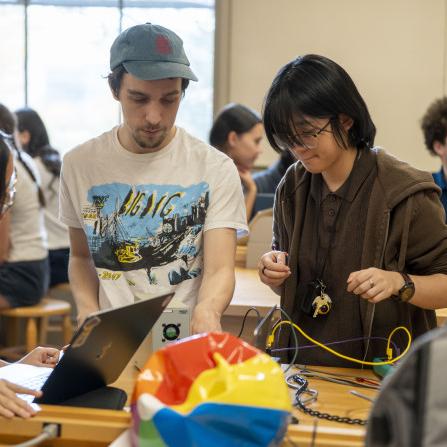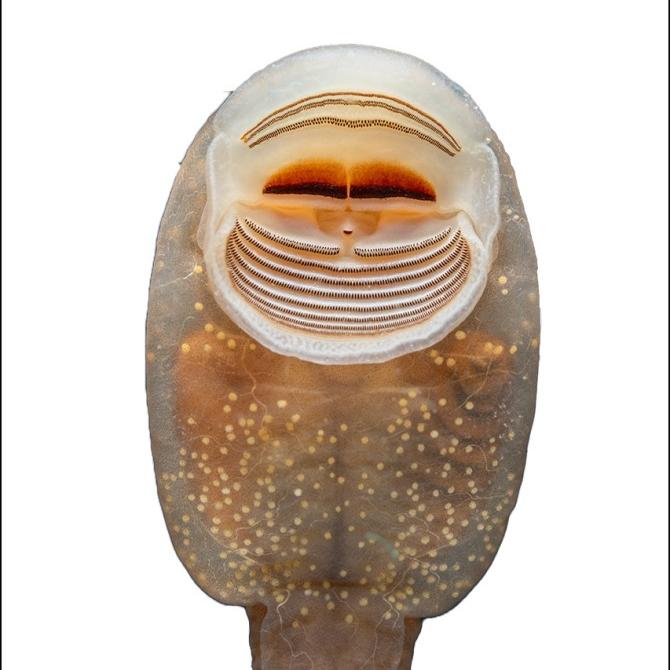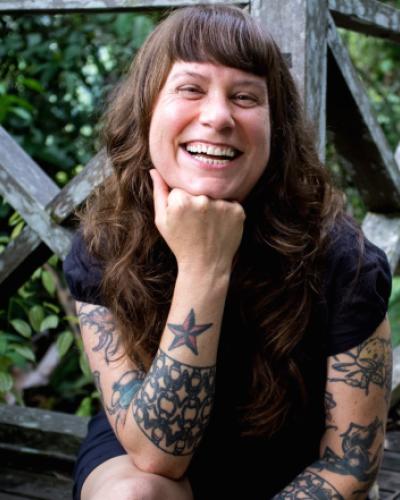Corrie Moreau is a professor in the Department of Entomology, the Martha N. and John C. Moser Professor of Arthropod Biosystematics and Biodiversity and curator of the Cornell University Insect Collection (CUIC) in the Department of Entomology. Her focus is on two major areas of research: using molecular and genomic tools to understand the evolution of insects, with an emphasis on ants, and understanding the diversity and function of the microbial communities living inside these insects. She is currently researching these two areas through projects that use reduced representation genome sequencing of hundreds of ant species to understand when and where they first evolved on the planet and a set of manipulative experiments to understand the role that gut bacteria have in the formation of insect cuticle.
When not at work, Moreau loves to be outdoors and hike with her husband, Christophe Duplais, Ph.D., a group leader in chemistry at Le Centre National de la Recherche Scientifique, France, and a visiting associate professor in the Department of Chemistry and Chemical Biology at Cornell. Moreau is also very committed to science communication and increasing diversity in science and dedicates a lot of time to these two topics.
Previous positions
Director of integrative research and associate curator, Field Museum of Natural History, Chicago, Illinois, 2008-18; Miller Research Fellow, University of California, Berkeley, 2007-08
Academic background
B.S., biology, San Francisco State University, 2000; M.A., biology, ecology and systematics, San Francisco State University/California Academy of Sciences, 2003; Ph.D., organismic and evolutionary biology, Harvard University, 2007
Last books read
Although I have read other books more recently, there are two books which stand out and that I always seem to return to and are related to my two scientific passions: William Morton Wheeler’s “Ants: Their Structure, Development and Behavior” (1910) and Paul Buchner’s “Endosymbiosis of Animals with Plant Microorganisms” (1965). These two authors were way ahead of their time with how they thought about ecology and evolution, especially in their organismic areas of expertise. Every time I have a new idea, I have to check that they didn’t actually already hypothesize it even with their much more limited tool kit!
Things that get you out of bed in the morning
I get excited thinking about all the new ways we can leverage novel tools in biology to understand the natural world. The field is changing so rapidly, and being able to use myriad state-of-the-art techniques and tools to address questions about life on the planet is one of the things I find most exciting. Realizing that almost every animal or plant is an ecosystem in itself, with a whole rain forest of diversity nested inside in the form of the microbiome, is an incredibly exciting insight into how complex nature is.
Three adjectives people might use to describe you
Passionate, strategic and curious
Course you’re most looking forward to teaching
ModelBased Phylogenetics and Hypothesis Testing (ENTOM 4610) in spring 2020
Major problem in your field you would want to solve (with unlimited grant funding)
I find it extremely interesting to think about the diversity of life on the planet and how symbiotic interactions with other organisms are critical to understand their ecological and evolutionary success. In many of these intimate interactions, we know that one or more of the partners in the systems provides benefits for the other. What I would like to understand is why we often see so much redundancy in the functional role of these symbiotic organisms. Is it that more is better? Is it that in some environments or situations one is more efficient? As all interactions have some cost, I guess the big question is why maintain investment in multiple partners when you may really only need one?
Things that most excite you about Cornell CALS
I am most excited about the collaborative community in Cornell CALS. I have already made connections within and across departments, and I look forward to many more years of exciting conversations and collaborations.
This originally appeared in the Cornell CALS News.






